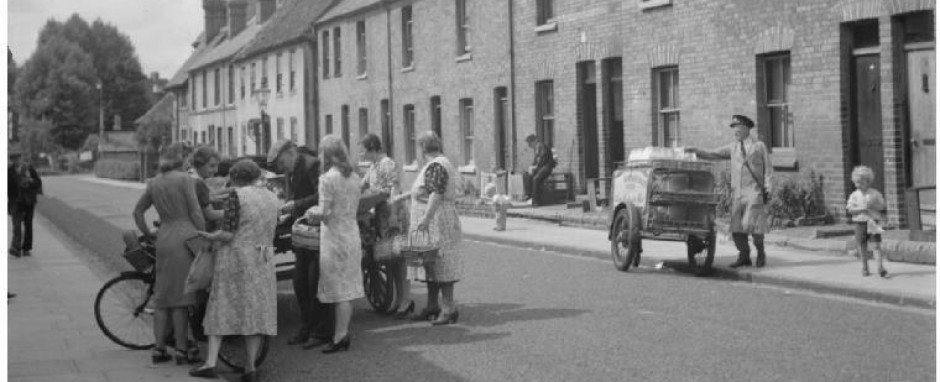Snotty Noses and Toboggans.
In our street every front garden had a small wooden seat by the front door. On warm summer evenings residents would sit outside and gossip, and naturally keep an eye on what we youngsters were up to. Any sign of wrongdoing and they’d threaten to tell our parents. Too many bad reports and we knew we’d get a clip around the ear when we went home.
During the late forties and early fifties our freedom to roam because there was nothing else to do was – due to always being under someone’s scrutiny – quite disciplined. Of course there were dangers. We had busy main roads, canals and rivers within a few streets of where we lived. I’ve no doubt our over-crowded streets also hid the odd pervert, but even in those pre-television days we were aware of the dangers, and if someone strange did cross our path, gave them a wide berth.
Perversely, we were allowed to enter the Bottle and Jug section of the pub and buy a packet of cigarettes or beer for the family and in our street we had plenty of choice With the Blue Lion, the Bricklayers Arms, the Rose and Crown and the Borough Arms, just around the corner. In our close knit community the publicans knew everyone and could easily check if we were on a genuine errand for our mum, dad or grandparents, so we never tried it on. It was pointless anyway, because we rarely had enough money to buy a bottle of Vimto or a bag of Smiths crisps to share with our mates, let alone indulge in grown up vices.
Weather permitting most kids played outside for most of the day, with the eldest looking after younger siblings. This meant staying in the street, wiping snotty noses – there was always one toddler with a cold; and if the youngest was still in the pram, we’d take turns pushing it up and down the street when it began to cry.
Our street was in a dip, and halfway down was Stoney Hill. Short but extremely steep, it had steps with hand rails on one side, a smooth path the other and was only driven down in emergencies or by the very foolish. We used the round, thick metal hand rails as parallel bars – I only fell on my head once and didn’t bother to tell mum – and the bravest kids took hair-raising rides in old pushchairs down the smooth path on the other side,.
When it snowed, a battered tin tea tray if you were lucky enough to find one, or squares of ply, made adequate toboggans. Boys with an engineering bent poked holes in each corner and ran a bit of rope through to give them steering, because when they shot down Stoney Hill at breakneck speed, if they didn’t make a sharp right or left at the bottom they careered into Garnet Street and faced a river enclosed by iron railings.
The waste ground in our street was originally terraces of narrow courts crammed with back to back, two room houses. When the courts were demolished under a slum clearance scheme during the thirties, the retaining walls on each level were left, which made tobogganing an interesting concept, especially as loose bricks, bits of metal and the odd lump of glass littered the flat areas. Our mothers became distinctly nervous if the snow cover was only an inch or so thick.
The Old Buildings as we called that bit of land was our playground, because the recreation grounds complete with swings, toilets, a cold water tap and a park keeper, lay on the other side of a busy main road and was out of bounds for us girls until we emerged as spotty teens. Or at least it was for me and my sister.
A discarded, frayed towing rope if it was long enough, meant we could play team skipping; and if there was only one tennis ball going then you might find twenty or thirty of us playing ‘Queenie’ on the waste ground. We marked out hopscotch squares on the granite pavements with a lump of chalk found on the waste ground, and used the high red brick walls of the imposing Victorian school that towered over our two up two downs, for doing handstands and playing two and three ball.
We heard of a girl who lived quite a few streets away being accidentally blinded in one eye by a boy using a home-made bow and arrow made out of willow twigs and string. It was shocking and although I didn’t personally know the girl, I can remember our boys saying bows and arrows could be dangerous and you shouldn’t use them especially around girls. And they didn’t.
Remembering how boys of eleven and under organised fund raising and bonfire protection for November 5th, and girls of fourteen and younger uncomplainingly and expertly cared for siblings, they put today’s corporate companies that specialize in character building and learning to work seamlessly as a team, in the shade.
I’ve spoken to a few Coleyites from those days that hated being poor, felt smothered by the closeness of the community and were glad to leave, but I loved it. I don’t think my grandchildren believe me when I tell them that on fine days, I would be playing outside all day and have to be dragged in for meals. It’s sad they’ll never know what they’ve missed.
